-
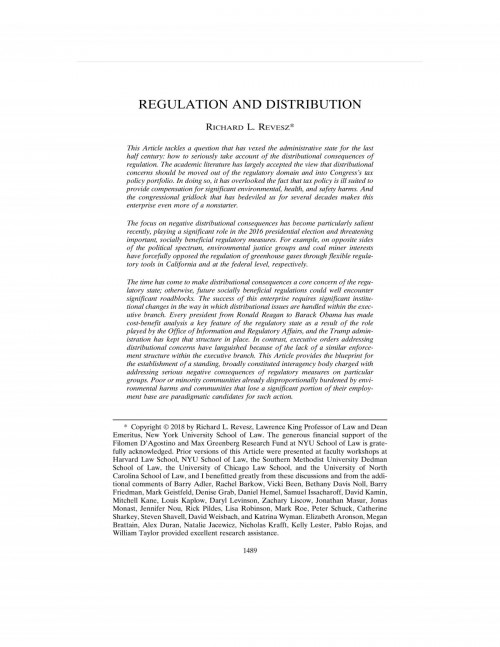
Regulation and Distribution
This article, published in the New York University Law Review, tackles a question that has vexed the administrative state for the last half century: how to seriously take account of the distributional consequences of regulation. Academic literature has largely accepted the view that distributional concerns should be moved out of the regulatory domain and into Congress’s tax policy portfolio. In doing so, it has overlooked the fact that tax policy is ill suited to provide compensation for significant environmental, health, and safety harms. And the congressional gridlock that has bedeviled us for several decades makes this enterprise even more of a nonstarter. The time has come to make distributional consequences a core concern of the regulatory state – otherwise, future socially beneficial regulations could well encounter significant roadblocks. This article provides the blueprint for the establishment of a standing, broadly constituted interagency body charged with addressing serious negative consequences of regulatory measures on particular groups.
-
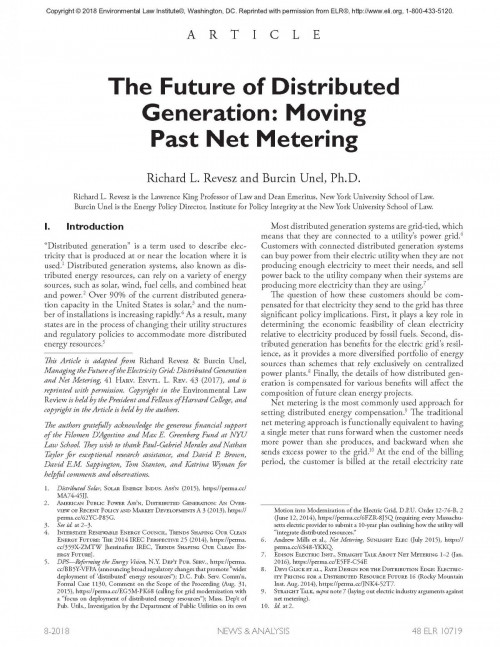
The Future of Distributed Generation
Moving Past Net Metering
This article provides an overview of the benefits and the costs of distributed generation and highlights the analytical flaws and missing elements in the competing positions and in most existing policies. We propose an alternative approach that recognizes the contributions to the electric grid of both utilities and distributed generators. The article is excerpted and revised from a longer academic article, “Managing the Future of the Electricity Grid: Distributed Generation and Net Metering,” which was selected by Environmental Law Reporter as one of the five best environmental law articles published in the 2017-2018 academic year.
-
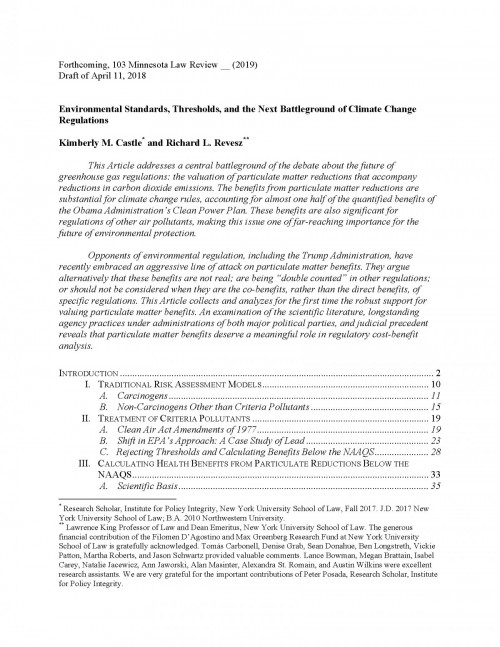
Environmental Standards, Thresholds, and the Next Battleground of Climate Change Regulations
Regulations to curtail climate change have the additional benefit of reducing air pollution by accelerating the shift away from carbon-intensive and high-polluting energy such as coal. The benefits from reducing just one air pollutant – particulate matter – account for almost half of the quantified benefits of the Obama Administration’s Clean Power Plan. Regulatory opponents have launched an aggressive attack on the use of these benefits to justify climate change regulations. They claim that these benefits are not real, are accounted for in other regulations, or should not be considered because they are indirect benefits. This article, published in the Minnesota Law Review, collects and analyzes for the first time the robust support for valuing particulate matter and other air pollution reduction benefits. Following an examination of the scientific literature, longstanding agency practices under administrations of both major political parties, and judicial precedent, the authors conclude that particulate matter benefits deserve a meaningful role in regulatory cost-benefit analysis.
-
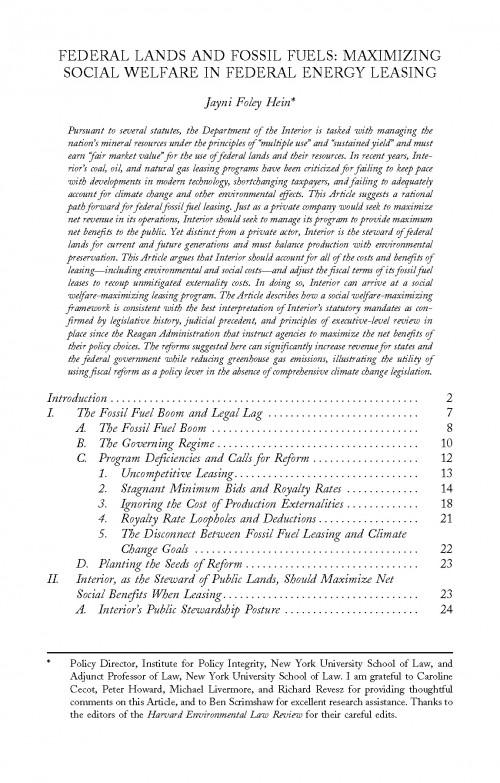
Federal Lands and Fossil Fuels: Maximizing Social Welfare in Federal Energy Leasing
Published in the Harvard Environmental Law Review.
The Department of the Interior is tasked with managing the nation’s mineral resources and must earn a “fair market value” for the use of federal lands and resources. But in recent years, Interior’s coal, oil, and natural gas leasing programs have been criticized for failing to keep pace with developments in modern technology, shortchanging taxpayers, and failing to adequately account for climate change and other environmental effects. This article, published in the Harvard Environmental Law Review, suggests a rational path forward for federal fossil fuel leasing. Just as a private company would seek to maximize net revenue in its operations, Interior should seek to manage its program to provide maximum net benefits to the public, to whom public resources belong. This includes accounting for all of the costs and benefits of leasing—including environmental and social costs—and adjusting the fiscal terms of its fossil fuel leases to recoup unmitigated externality costs.
-
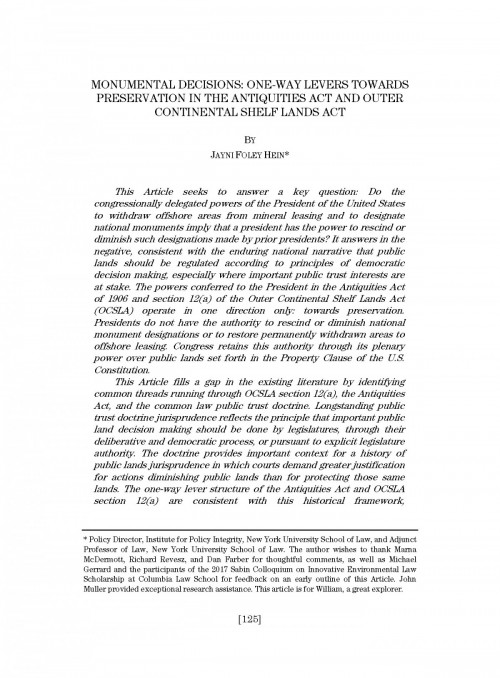
Monumental Decisions: One-Way Levers towards Preservation in the Antiquities Act and Outer Continental Shelf Lands Act
Published in Environmental Law Review
In new legal scholarship published in Environmental Law Review, Jayni Hein argues that the powers granted to the President in the Antiquities Act and Outer Continental Shelf Lands Act (OCSLA) operate in one direction only: towards preservation. Presidents do not have the authority to rescind or diminish national monument designations, nor to re-open previously withdrawn areas to offshore leasing. Congress, alone, retains this authority over public lands.
Viewing all publications in Academic Articles/Working Papers
